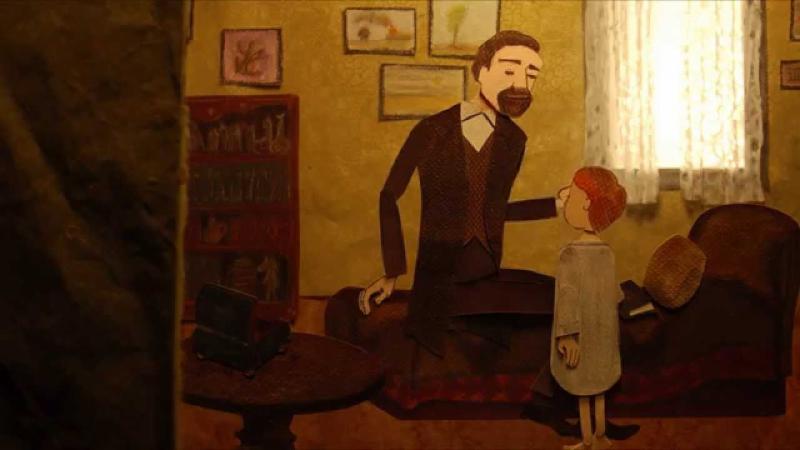
Shari Thurer, ScD, is a BPSI Psychotherapist Member. Her below remarks originally appeared in the Winter 2019 issue of the library newsletter, which can be read here.
While it is not uncommon for Freud’s bon mots to be written on posters, coffee cups, and greeting cards, they are now featured in an animated cartoon on YouTube. Commissioned by The Vienna Project at Harvard, a scholarly and artistic collaboration that explores Vienna at the turn of the century, the short film conveys the dream of the burning child as retold by Freud in the Interpretation of Dreams. To quote Freud:
“A father had been watching beside his child’s sickbed for days and nights on end. After the child had died, he went into the next room to lie down, but left the door open so that he could see from his bedroom into the room in which his child’s body was laid out, with tall candles around it. An old man had been engaged to watch over it, and sat beside the body murmuring prayers. After a few hours’ sleep, the father had a dream that his child was standing by his bed, caught him by the arm and whispered reproachfully: ‘Father, don’t you see I’m burning?’ He woke up, noticed a bright glare of light from the next room, hurried into it and found the old watchman had dropped off to sleep and that the wrappings and one of the arms of the beloved child’s dead body had been burned by the lighted candle that had fallen on them.”
Freud argues that, in line with his theory that dreams are wish fulfillments, the purpose of the dream was to prolong the sleep of the father for a few moments more because in it his dead child was still alive. Freud continues:
“The dead child behaved in the dream like a living one: he himself warned his father, came to his bed, and caught him by the arm, just as he had probably done on the occasion from the memory of which the first part of the child’s words in the dream were derived. For the sake of fulfilment of this wish the father prolonged his sleep one moment. The dream was preferred to a waking reflection because it was able to show the child as once more alive. If the father had woken up first and then made the inference that led him to go to the next room, he would, as it were, have shortened his child’s life by that moment of time.”
Lacan also commented on this dream in Four Fundamental Concepts of Psycho-Analysis, suggesting that the child’s words perpetuate the remorse felt by the father that the man he has put at his child’s bedside was not up to the job. The animated short was created by animator Tim Rickart. It was devised and directed by Joseph Koerner, Victor S. Thomas, Professor of History of Art and Architecture at Harvard. I recommend you watch it.
Shari Thurer, ScD, is a BPSI Psychotherapist and Library Committee Member, an Adjunct Associate Professor at Boston University, a psychologist in Boston, and the author of many noted publications, including Myths of Motherhood: How Culture Reinvents the Good Mother (Houghton Mifflin Harcourt, 1994) and The End of Gender: A Psychological Autopsy (Routledge, 2005).
Shari Thurer can be contacted by email here.
* * *
The opinions or views expressed on the Boston Psychoanalytic Society & Institute (“BPSI”) social media platforms, including, but not limited to, blogs, Facebook posts and Twitter posts, represent the thoughts of individual contributors and are not necessarily those of the Boston Psychoanalytic Society & Institute or any of its directors, officers, employees, staff, board of directors, or members. All posts on BPSI social media platforms are for informational purposes only and should not be regarded as professional advice.
BPSI does not control or guarantee the accuracy, relevance, timeliness or completeness of information contained in its contributors’ posts and/or blog entries, or found by following any linked websites. BPSI will not be liable for any damages from the display or use of information posted on its website or social media platforms. BPSI cannot and does not authorize the use of copyrighted materials contained in linked websites.

